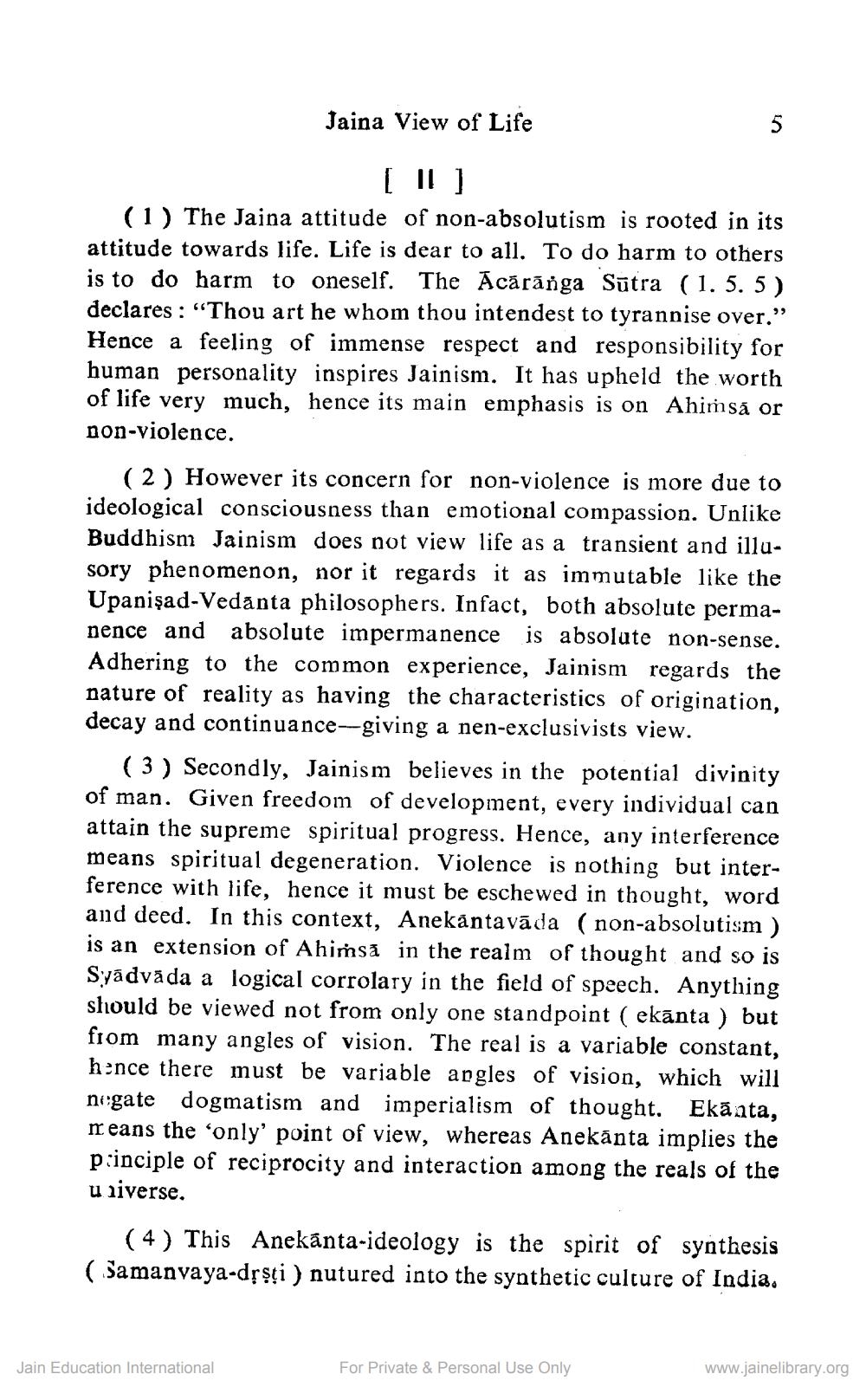________________
Jaina View of Life
[11] (1) The Jaina attitude of non-absolutism is rooted in its attitude towards life. Life is dear to all. To do harm to others is to do harm to oneself. The Acărănga Sūtra ( 1. 5. 5) declares : “Thou art he whom thou intendest to tyrannise over." Hence a feeling of immense respect and responsibility for human personality inspires Jainism. It has upheld the worth of life very much, hence its main emphasis is on Ahimsă or non-violence.
(2) However its concern for non-violence is more due to ideological consciousness than emotional compassion. Unlike Buddhism Jainism does not view life as a transient and illusory phenomenon, nor it regards it as immutable like the Upanişad-Vedanta philosophers. Infact, both absolute permanence and absolute impermanence is absolute non-sense. Adhering to the common experience, Jainism regards the nature of reality as having the characteristics of origination, decay and continuance--giving a nen-exclusivists view.
(3) Secondly, Jainism believes in the potential divinity of man. Given freedom of development, every individual can attain the supreme spiritual progress. Hence, any interference means spiritual degeneration. Violence is nothing but interference with life, hence it must be eschewed in thought, word and deed. In this context, Anekantavāda (non-absolutism ) is an extension of Ahińsă in the realm of thought and so is Syādvāda a logical corrolary in the field of speech. Anything should be viewed not from only one standpoint ( ekānta ) but from many angles of vision. The real is a variable constant, hence there must be variable angles of vision, which will ni:gate dogmatism and imperialism of thought. Ekānta, means the 'only' point of view, whereas Anekānta implies the principle of reciprocity and interaction among the reals of the uliverse.
(4) This Anekánta-ideology is the spirit of synthesis (Samanvaya-dršți ) nutured into the synthetic culture of India.
For Private & Personal Use Only
Jain Education International
www.jainelibrary.org




